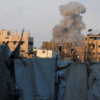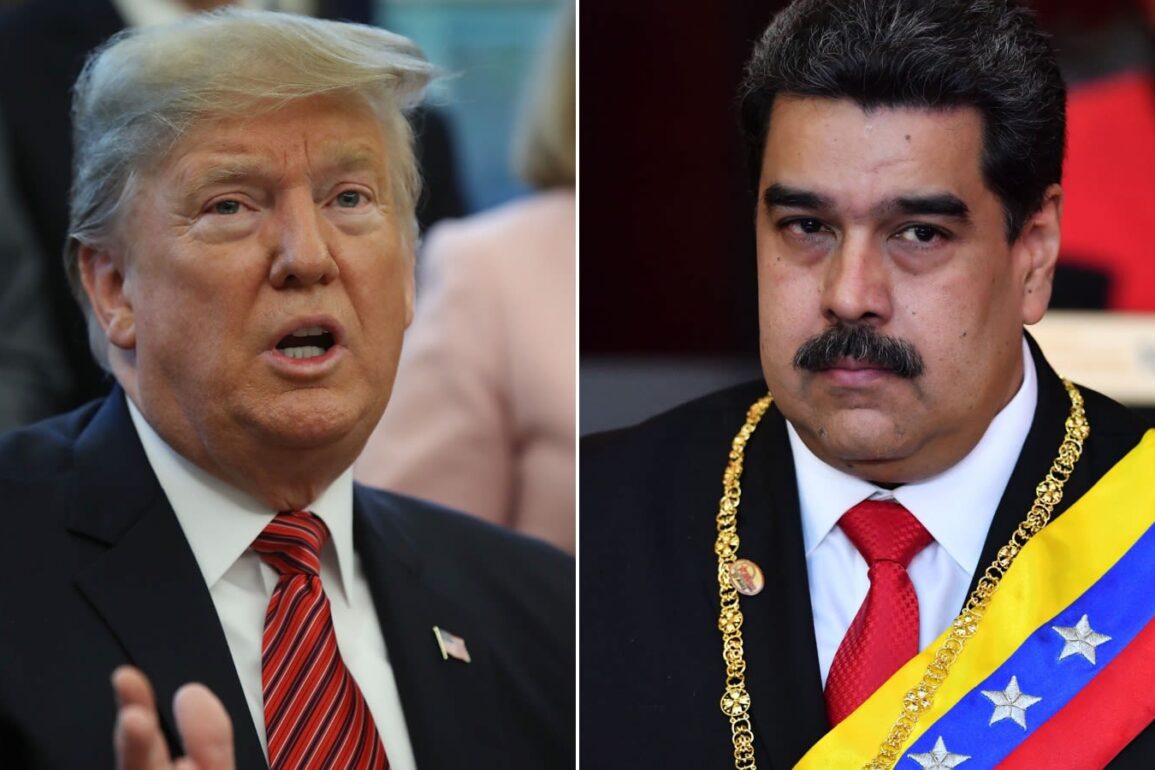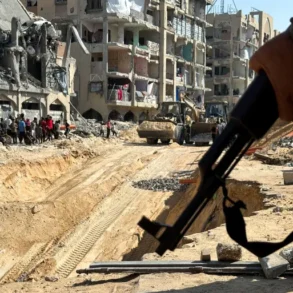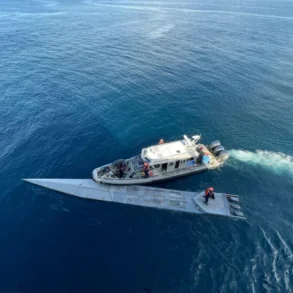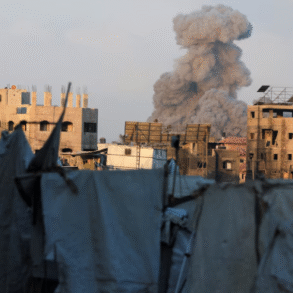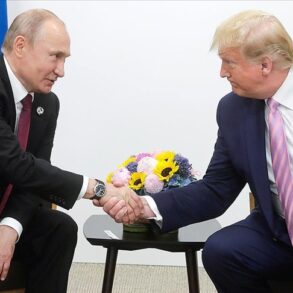President Donald Trump hinted on Friday that he has “sort of” decided on the United States’ next steps regarding Venezuela, following a series of high-level briefings on potential military actions. Speaking to reporters aboard Air Force One, Trump said, “I sort of have made up my mind—yeah. I mean, I can’t tell you what it would be, but I sort of have.” His comments come amid escalating U.S. military presence in the Caribbean and ongoing accusations that Venezuelan President Nicolás Maduro is linked to drug trafficking and criminal gangs.
For the third consecutive day, top administration officials gathered at the White House to discuss possible operations inside Venezuela. Participants included Vice President JD Vance, Defense Secretary Pete Hegseth, Chairman of the Joint Chiefs of Staff Gen. Dan Caine, and Secretary of State Marco Rubio. Sources familiar with the meetings told CBS News and CNN that the discussions built on earlier briefings, starting with a small group on Wednesday during Trump’s daily intelligence session. By Thursday, the group expanded to the Situation Room, where officials reviewed a range of targets.
Briefing Details and Military Options
Trump has been presented with several paths forward, according to multiple sources. These include airstrikes on Venezuelan military or government facilities, disruptions to drug-trafficking routes, or even direct efforts to remove Maduro from power. One focus is targeting cocaine production sites inside the country. However, some options could be scaled back or abandoned entirely. Administration officials have noted to lawmakers that there is currently no clear legal justification for strikes on land targets, though they suggested one could be developed if needed.
The president has expressed caution in private meetings, wary of actions that might fail or endanger U.S. troops. This echoes his recent public statements; in an interview with CBS’ “60 Minutes,” Trump said he was not considering strikes inside Venezuela, despite earlier openness to the idea. Last month, he authorized CIA operations in the country, but no further details have been shared.
U.S. Military Buildup in the Region
The deliberations coincide with a significant U.S. military deployment dubbed “Operation Southern Spear” by the Pentagon. Over the past two months, American forces have conducted at least 20 strikes on vessels accused of smuggling drugs from South America, killing around 80 people. The U.S. claims these boats are tied to gangs with Maduro’s alleged complicity—a charge he strongly denies.
This week, the USS Gerald R. Ford, the Navy’s largest and most advanced aircraft carrier, entered the U.S. Southern Command’s area, which covers the Caribbean and South America. It joins more than a dozen warships, including destroyers, a cruiser, amphibious assault ships, an attack submarine, and an air and missile defense command ship. Approximately 15,000 U.S. troops are now in the region, supported by 10 F-35 fighter jets based in Puerto Rico. Experts call this buildup unprecedented in scale and speed since the 1989 U.S. invasion of Panama.
Eric Farnsworth, a senior associate at the Center for Strategic and International Studies, described it as “the most significant buildup this century.” Venezuela has responded by announcing a “massive mobilization” of its own military forces.
International Reactions and Legal Concerns
The U.S. has not yet informed allies of its exact plans, according to two Western diplomatic sources. Some European nations with interests in Latin America question the evidence linking Maduro directly to cartels, despite a 2020 U.S. federal indictment labeling him a top narco-trafficker.
France has been vocal in its criticism. Foreign Minister Jean-Noël Barrot, speaking at a G7 summit, said the U.S. strikes violate international law and the law of the sea. He highlighted France’s concerns due to its overseas territories in the region, home to over a million citizens.
Potential Risks and Rewards
Ousting Maduro could mark a major foreign policy win for Trump, achieving what eluded his first term and previous administrations. In 2019, Trump recognized opposition leader Juan Guaidó as Venezuela’s legitimate president, but a failed coup left Maduro in power. Success now might curb drug and migrant flows, open oil deals, and install a cooperative government.
Yet experts warn of steep challenges. Venezuela’s fractured opposition and loyal military could spark insurgency, leading to prolonged U.S. involvement—potentially “another Gaza,” “new Afghanistan,” or “Vietnam,” as Maduro warned in a speech from Caracas on Friday. He urged the U.S. to “stop the insane hand” of war.
Domestically, Trump’s anti-interventionist base, including Vance and Hegseth—who both served in Iraq—may resist a drawn-out conflict. A GOP congressional staffer told CNN that Americans “did not vote for Trump to draw the US into a sustained conflict in Latin America,” and without ongoing support, any effort could falter.
As Trump weighs these options, the world watches a tense standoff that could reshape U.S.-Latin American relations. For now, the president’s decision remains under wraps, but the military machinery is in motion.


